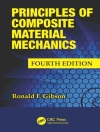Theory and practice of tolerances are very important for designing and manufacturing engineering artifacts on a rational basis. Tolerance specifies a degree of "discrepancy" between an idealized object and its physical realization. Such discrepancy inevitably comes into our product realization processes because of practical cost consideration or our inability to fully control manufacturing processes. Major product and production characteristics which are affected by tolerances are product quality and cost. For achieving high precision machines tight tolerance specification is necessary, but this will normally increase product cost. In order to optimally compromise the conflicting requirements of quality and cost, it is essential to take into account of the total product life cycle throughout product planning, design, manufacturing, maintenance and recycling. For example, in order to construct durable products under severe working conditions, low sensitivity of product functionality with respect to tolerances is required. In future, re-use of components or parts will become important, and tolerance synthesis with respect to this aspect will be an interesting future research topics.
Fumihiko Kimura
Computer-aided Tolerancing [PDF ebook]
Proceedings of the 4th CIRP Design Seminar The University of Tokyo, Tokyo, Japan, April 5-6, 1995
Computer-aided Tolerancing [PDF ebook]
Proceedings of the 4th CIRP Design Seminar The University of Tokyo, Tokyo, Japan, April 5-6, 1995
ซื้อ eBook เล่มนี้และรับฟรีอีก 1 เล่ม!
ภาษา อังกฤษ ● รูป PDF ● ISBN 9789400915299 ● บรรณาธิการ Fumihiko Kimura ● สำนักพิมพ์ Springer Netherlands ● การตีพิมพ์ 2012 ● ที่สามารถดาวน์โหลดได้ 3 ครั้ง ● เงินตรา EUR ● ID 4732812 ● ป้องกันการคัดลอก Adobe DRM
ต้องใช้เครื่องอ่านหนังสืออิเล็กทรอนิกส์ที่มีความสามารถ DRM












